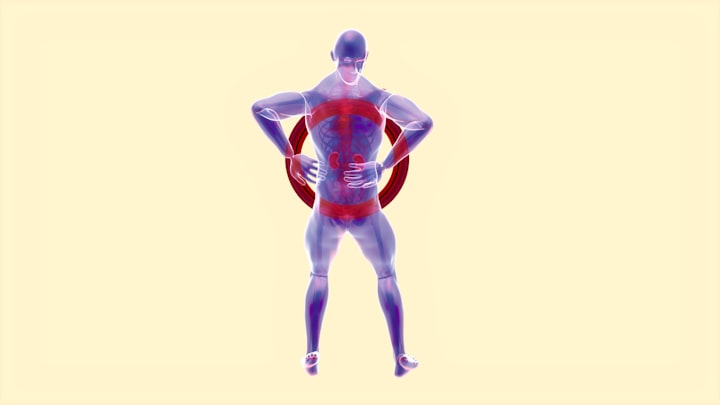Understanding Knee and Joint Pain: Causes, Symptoms, and Treatment
The Anatomy of Knee and Joint Pain: Understanding the Causes

Knee and joint pain is a common condition that affects millions of people worldwide. From athletes to the elderly, anyone can experience knee and joint pain at some point in their lives. In this article, we'll explore the causes, symptoms, and treatment options for knee and joint pain.
What is Knee and Joint Pain?
Knee and joint pain refers to any discomfort, soreness, or pain in the knee or joints. It can be caused by a variety of factors, such as injury, overuse, or underlying medical conditions. The pain can range from mild to severe, and it can affect one or both knees or joints.
Causes of Knee and Joint Pain
Several factors can contribute to knee and joint pain, including:
Arthritis: Osteoarthritis and rheumatoid arthritis are common forms of arthritis that can cause knee and joint pain.
Injuries: Any injury to the knee or joint, such as a sprain or strain, can cause pain.
Overuse: Repetitive movements or overuse of the knee or joint can cause pain and discomfort.
Infections: Certain infections can cause inflammation and pain in the knee and joints.
Obesity: Being overweight puts extra pressure on the knees and joints, leading to pain and discomfort.
Symptoms of Knee and Joint Pain
The symptoms of knee and joint pain can vary depending on the cause and severity of the condition. Some common symptoms include:
Pain or discomfort in the knee or joint
Swelling and inflammation
Stiffness and limited range of motion
Redness and warmth in the affected area
Weakness and instability
Diagnosis and Treatment of Knee and Joint Pain
To diagnose knee and joint pain, a doctor may perform a physical examination, review medical history, and order imaging tests such as X-rays or MRIs. Treatment options may include:
Medications: Pain relievers, anti-inflammatory drugs, and corticosteroids can help reduce pain and inflammation.
Physical therapy: Exercises and stretches can help improve flexibility, strength, and range of motion.
Surgery: In severe cases, surgery may be necessary to repair or replace damaged joints.
Natural Supplements for Joint Health
In addition to traditional medical treatments, natural supplements can help promote joint health and reduce inflammation. Some effective supplements include:
Glucosamine and chondroitin: These supplements can help reduce inflammation and improve joint mobility.
Omega-3 fatty acids: Found in fish oil supplements, these fatty acids can help reduce inflammation and improve joint health.
Turmeric: This spice contains curcumin, which has anti-inflammatory properties and can help reduce joint pain and stiffness.
The Link Between Diet and Joint Pain
Diet can play a significant role in joint health. Certain foods can help reduce inflammation and promote joint health, while others can contribute to inflammation and exacerbate joint pain. Some foods to incorporate into your diet include:
Fatty fish, such as salmon and tuna
Leafy green vegetables, such as spinach and kale
Nuts and seeds, such as almonds and chia seeds
Fruits, such as berries and oranges
Whole grains, such as brown rice and quinoa
Conclusion
Knee and joint pain can be a debilitating condition that affects daily life. By understanding the causes, symptoms, and treatment options, individuals can take steps to manage their pain and improve joint health. Incorporating natural supplements and a healthy diet can also help promote joint health and reduce inflammation.
FAQs
Can knee and joint pain be prevented?
While some factors, such as genetics, cannot be controlled, there are steps individuals can take to reduce their risk of knee and joint pain. These include maintaining a healthy weight, avoiding repetitive movements, and wearing proper footwear during exercise.
Is surgery always necessary for knee and joint pain?
No, surgery is not always necessary. In many cases, non-surgical treatments such as physical therapy and medication can effectively manage pain and improve joint health.
Can knee and joint pain be caused by stress?
Yes, stress can contribute to inflammation and exacerbate knee and joint pain. Managing stress through relaxation techniques and exercise can help reduce pain and improve overall health.
Are there any natural remedies for knee and joint pain?
Yes, natural supplements such as glucosamine and chondroitin, omega-3 fatty acids, and turmeric can help reduce inflammation and improve joint health.
How long does it take to recover from knee or joint surgery?
Recovery time can vary depending on the type of surgery and individual factors such as age and overall health. It's important to follow post-operative instructions and attend physical therapy to ensure a full recovery.





Comments
There are no comments for this story
Be the first to respond and start the conversation.